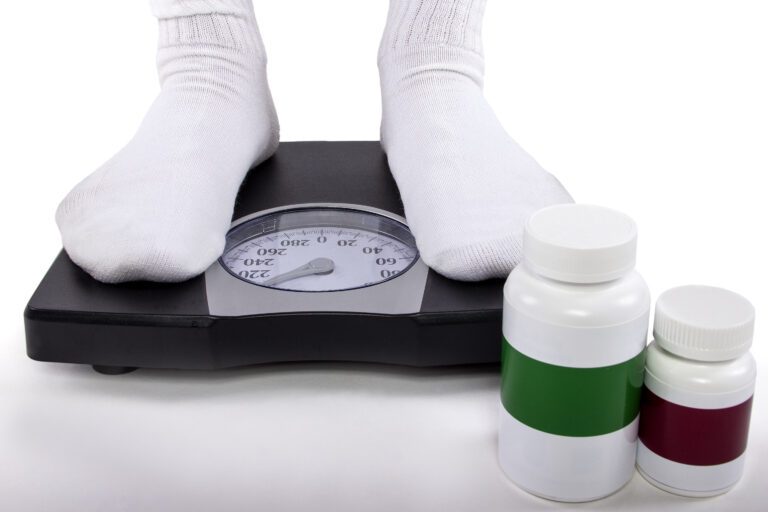Do You Know What’s In Your Cocktail Of Medication?
Finding the right cocktail of medication can be time-consuming, tiring, and exhausting while testing your patience. For most of us, it can take months, or sometimes even years.
If you follow the medical model of treatment, like me, medication is the foundation for managing bipolar disorder.
The FDA closely scrutinizes pharmaceutical companies before they can release any medication to the public. The type of medication, fillers, and exact composition of each pill is closely investigated, along with documented trials. In addition, they provide warnings and side effects. This is all done for the safety of the consumer – for us.
With the treatment of bipolar disorder, there are medications that specifically treat bipolar disorder. These medications come from different classes, and they make up the cocktail of medication you take each day.
What Is In Your Cocktail Of Medication?
Mood Stabilizers
Mood stabilizers are a class of medication designed to stabilize the mood of a patient. Sometimes, if a patient has a severe case of bipolar disorder, it may take more than one mood stabilizer to help them manage it. Medications work on different pathways in the brain, and that is the case with mood stabilizers, as well – even different medications within the same class. This has been my experience many times throughout my life.
As a natural salt, Lithium was one of the first documented mood stabilizers. It is extremely effective and, in fact, is still used as a primary means of treatment for bipolar disorder today. Like other medications that treat bipolar disorder, Lithium needs continual blood monitoring.
Anticonvulsants help patients with seizures. Like Lithium, anticonvulsants are also mood stabilizers. They have been shown to improve some patients with bipolar disorder.
Antipsychotics
When treating bipolar disorder, antipsychotics are used to treat mania. Antipsychotics can treat hallucinations, delusions, and paranoia. They have a sedating effect, which helps to bring the patient “down” from the “highs” of mania.
A common symptom of mania is racing thoughts. Antipsychotics can help slow these thoughts down. In some patients with bipolar disorder, an antipsychotic is used as part of their daily treatment.
Antipsychotics are divided into two classes, “Typical” and “Atypical.”
“Typical antipsychotics” are the older generation of antipsychotics. They have a higher incidence of negative side effects and are not prescribed as much as they used to be decades ago.
“Atypical antipsychotics” are the newer generation of antipsychotics. They are supposed to have a smaller side effect profile and are generally easier to tolerate than their predecessor.
Sleep Aids
Sleep aids are used to help treat insomnia and other sleep disturbances. Mostly, we prescribed these aids for short periods of time – up to 7 days. However, some patients may need to be on them for longer than 7 days.
Like other medications, your body can build up a tolerance for this class of medication. When speaking of tolerance, I mean that the body gets used to the strength of a prescribed medication, and as a result, the medication is no longer effective. The strength of medication can be increased, but its effectiveness will slowly dissipate over time, and the medication will need to be increased once again.
Tolerance is a primary factor why many prescribing medical professionals try to steer clear of sleep aids in treating bipolar disorder.
Antidepressants
Antidepressants are a class of medication used to treat unipolar depression. Sometimes, a prescribing medical professional will prescribe an antidepressant when a patient is experiencing bipolar depression.
However, most doctors will not prescribe an antidepressant to a patient with bipolar disorder type 1. Sometimes, if the patient is on one or more mood stabilizers, the doctor may reconsider. The reasoning behind not putting a patient with bipolar disorder on an antidepressant is that antidepressants have been shown to trigger mania in some patients – mainly those diagnosed with type 1. With one or more mood stabilizers on board, it is thought that they will stabilize the trigger into mania. As a disclaimer, this is only a theory, as current studies and trials are being conducted to prove or disprove this claim.
Stimulants
Stimulants are a class of medication used primarily to treat both ADD and ADHD. The majority of doctors will not prescribe stimulants to a patient with bipolar disorder, with the main reason being that stimulants rev up the brain. As a result, similar to antidepressants, stimulants can trigger a manic episode. Unlike antidepressants, even if you are on a mood stabilizer and/or antipsychotic, stimulants can still trigger a manic episode. Again, as a disclaimer, this is currently only a theory. However, my experience proves this line of thinking to be true.
I remember a doctor once told me that prescribing a stimulant to a patient with bipolar disorder is “like pouring gasoline on a lit flame.”
Last Thoughts
When I was first diagnosed with bipolar disorder, I did not understand the terms:
“Cocktail of medication,” or
“Cocktail of meds.”
These terms mean several medications are combined together, many times from the various classes of medications, and used to treat a particular medical condition. Here, I am specifically talking about bipolar disorder, but the same is true for all other conditions, as well.
To help keep track of my medications, I have a medication holder I use to make sure that I am taking my medication both properly and in the right amount. My wife found a travel-size two-week medication container that I fill up every two weeks.
Medication adherence is a big deterrent to the treatment of bipolar disorder. However, many times it is because the patient simply forgets to take their medication. One of my buddies has an alarm on his medication holder. The alarm goes off at pre-selected times throughout the day to remind him to take his medication. This is a great option to look into if you are having trouble with medication adherence.
For me, I have an alarm set on my watch to remind me when to take my meds. Do what works best for you!
Since I have younger kiddos at home, I lock up all my medications and keep them out of the reach of my children. This is a great practice to follow even if you do not have bipolar disorder.
How do you remember to take your cocktail of medication? What has been your experience in taking medication? I’d love to hear your comments below if you are willing to share.
Until next time, take care of yourself.







